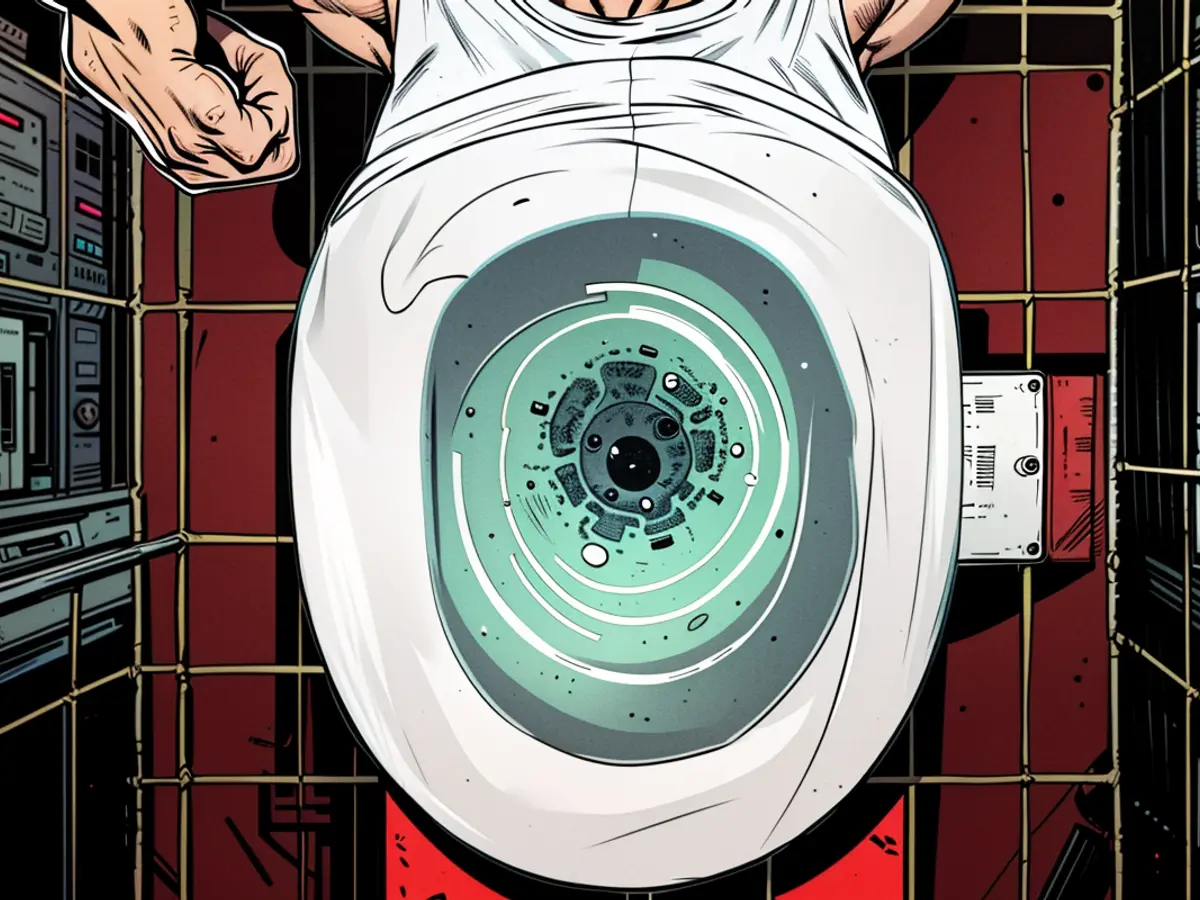Stuhlgang - how often is it healthy?
A properly functioning digestion is important for a healthy body. The frequency of bowel movements, however, varies greatly: Some have them multiple times a day, while others only a few times a week. The number of toilet visits that is healthy, clarifies a research team now.
Everyone - some more frequently, others less often. Yet, nobody likes to talk about bowel movements. At least since the bestseller book "Gut: The Inside Story of Our Body's Most Underrated Organ" by Giulia Enders: A healthy life is closely linked to the gut. Researchers have now examined gut activity more closely and found an answer to the question: How often is it really healthy?
For the study in "Cell Reports Medicine", scientists from the Institute for Systems Biology (ISB) in Seattle and Washington University analyzed stool and blood samples from 1425 adults who had no chronic diseases. In addition, the probands answered questions about their lifestyle, such as what they ate, how much sport they did, and their psychological health.
Based on the frequency of their bowel movements, the study participants were grouped: Those who defecated one to three times a day were in the "normal frequent" category. This group accounted for two-thirds of all participants. One in five defecated three to six times a week, which was considered "normal infrequent". About seven percent suffered from chronic constipation (less than twice a week), and about six percent from diarrhea (more than four times a day). Young people, according to the researchers, generally have fewer bowel movements than older people. This also applies to women and people with a low Body-Mass-Index (BMI).
Damage to Kidney and Liver
The results: The ideal number of bowel movements, according to the study, is one to two times a day. The blood tests of these people showed no notable abnormalities, they suffered less from depression and anxiety disorders. In addition, the researchers found fewer harmful bacteria in their stool.
However, in the blood tests of participants who defecated only three to six times a week, certain substances were already elevated, indicating poorer kidney function. In comparison to the first group, they reported more frequently suffering from depression.
The values were particularly poor in the study for people with chronic constipation. They showed reduced kidney function. In this dynamic, the gut microbiome, which consists of various microbes that feed on nutrients in the stool, plays a decisive role: The stool remains in the colon during chronic constipation for too long. As a result, the microbes deplete their nutrient reserves and begin to break down proteins in the colon lining.
"When we don't feed our microbes, they start to eat us," explains study author Sean Gibbons from the ISB in a press release. This leads to toxic metabolic products, which can cause inflammation and damage to the kidneys and liver.
The results were similar for chronic diarrhea. Inflammation can destroy the intestinal mucosa, allowing toxins to enter the bloodstream and potentially cause organ damage, the study states.
Much fruit and vegetables, little alcohol and red meat
"We suspect that chronic constipation or diarrhea may be underestimated causes of organ damage and chronic diseases," summarize the study authors. "Even in healthy people."
In the first line, it is important to take good care of oneself and provide nourishment with foods that promote the growth of beneficial bacteria, says Joseph Petrosino, Professor of Molecular Virology and Microbiology at Baylor College of Medicine. He was not involved in the study. According to the expert, a healthy lifestyle includes consuming large amounts of fruit and vegetables and reducing alcohol and red meat. For people with chronic digestive problems, probiotics could provide additional support.
The study published in "Cell Reports Medicine" emphasizes the importance of Nutrition in maintaining a healthy gut and overall health. Researchers found that consuming a diet rich in fruits and vegetables, while reducing alcohol and red meat, can promote the growth of beneficial bacteria and help prevent chronic digestive issues like constipation or diarrhea. On the other hand, damage to the kidneys and liver can occur due to toxic metabolic products, as stated in the press release by Sean Gibbons from the ISB, when the gut microbiome is not adequately fed and begins to break down proteins in the colon lining.
Education and awareness about the role of gut health in overall health, as discussed in Giulia Enders' bestseller "Gut: The Inside Story of Our Body's Most Underrated Organ", can lead to healthier lifestyle choices and potentially reduce the risk of chronic diseases.







